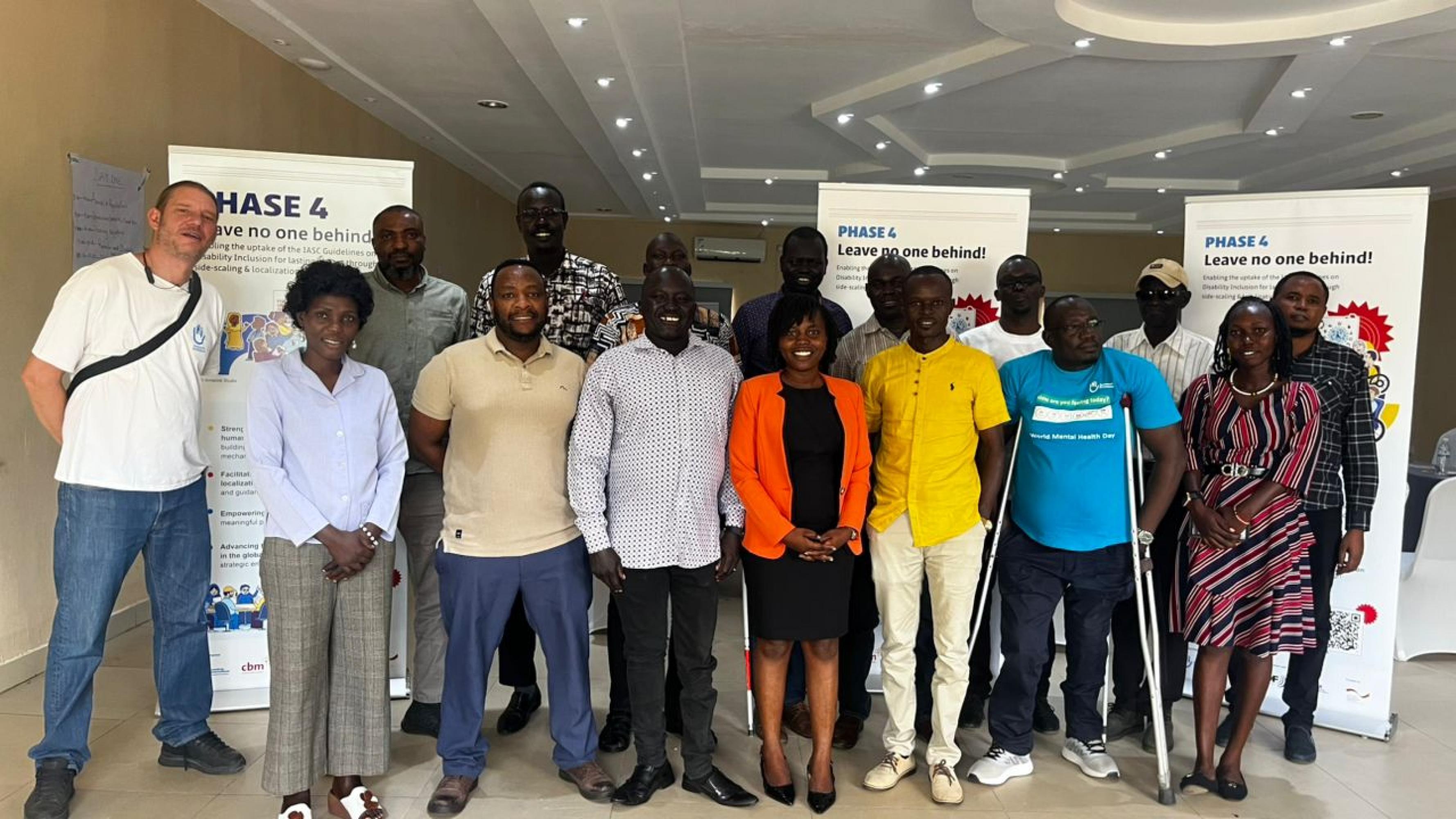
© Janet/HI
From September 18 to 19, 2025, the Phase 4 – Leave no one behind! project team in South Sudan team held a two-day training on inclusive coordination for the Inter-Cluster Coordination Group (ICCG) in Juba. This event brought together humanitarian leaders, cluster coordinators, technical specialists, and leaders from Organizations of Persons with Disabilities (OPDs) to strengthen inclusive practices in humanitarian efforts.
The training, designed and facilitated by the Global Inclusive Humanitarian Action (IHA) Specialist, the training aimed to provide ICCG members with a shared understanding of disability-related concepts, promote key standards for disability inclusion in humanitarian action, such as the Minimum Disability Approach (MDA) and the twin-track approach, adopt effective inclusion practices, and outline strategic priorities aligned with the Humanitarian Programme Cycle (HPC) during the ongoing humanitarian reset.
The session was conducted in accordance with international commitments under the Inter-Agency Standing Committee (IASC) Guidelines on the Inclusion of Persons with Disabilities in Humanitarian Action. Participants engaged in interactive discussions and group activities that focused on key topics, such as disability concepts; the IASC Guidelines; inclusive coordination principles and models; the participation and empowerment of Organizations of Persons with Disabilities (OPDs); and strategic priorities within the Humanitarian Program Cycle (HPC).
During the opening remarks, a representative from the United Nations Office for the Coordination of Humanitarian Affairs (UNOCHA) emphasized that:
“inclusive coordination is not merely a question of rights, but it also improves the quality, effectiveness, and accountability of humanitarian aid.”
The representative emphasized the crucial role of ICCG leadership in ensuring the inclusion of persons with disabilities and other marginalized groups in all phases of the humanitarian response.
The main action points included identifying and appointing disability inclusion focal points in each cluster; improving data collection by disaggregating data by age, gender, and disability using the Washington Group Short Set of Questions; strengthening collaboration with OPDs; and integrating inclusive indicators into cluster reporting.
